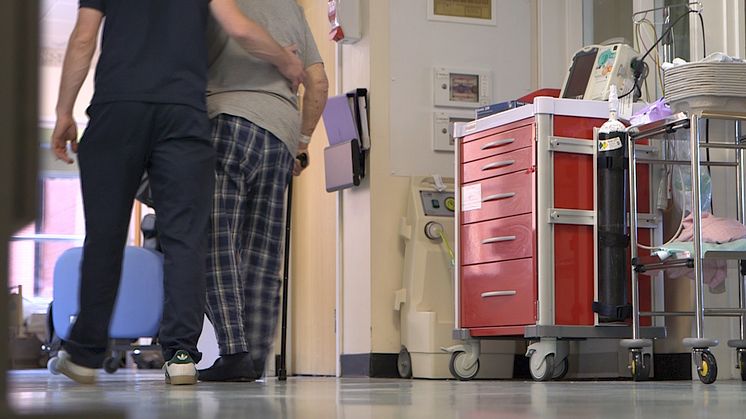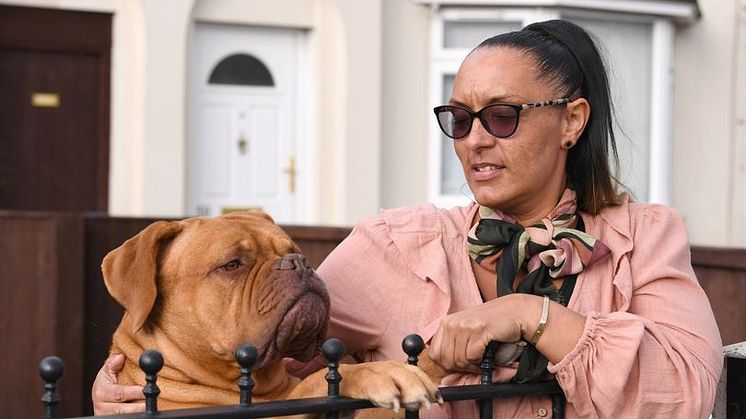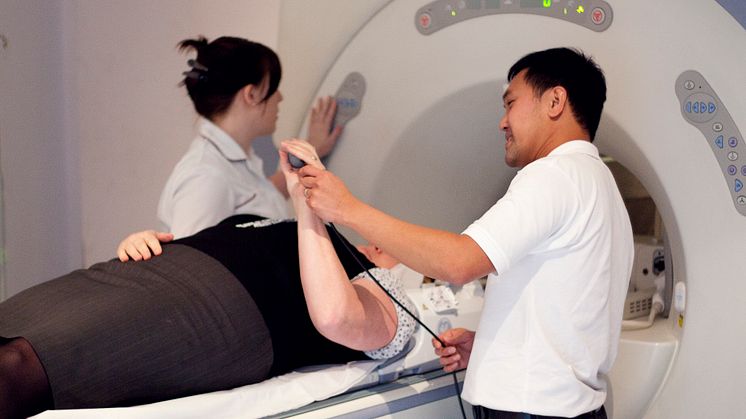
Press release -
Postcode lottery leaves thousands of stroke survivors deserted after leaving hospital
Shocking new figures reveal huge differences in the support available for stroke survivors across the UK when they leave hospital. Northern Ireland props up the bottom of the league table(i) as the area with the least amount of support available for local populations.
This World Stroke Day, the Stroke Association publishes new findings(ii) that show only two out of five (41%) stroke survivors in Northern Ireland feel that they received enough support with their recovery after leaving hospital. This is in stark comparison with stroke survivors in the East Midlands where almost two-thirds (60%) of people say they received enough support. These findings illustrate a wide gap between regions in providing rehabilitation and support after stroke.
There are currently 1.2 million stroke survivors in the UK, and these latest findings show that many people feel let down by the health and social care system. The charity’s Lived Experience report is compiled from a large survey of people affected by stroke to find out more about their experiences. The charity has previously published findings on the hidden effects of stroke, the financial impact of stroke and the experience of carers. This final chapter, Rebuilding lives after stroke, reveals that across the UK:
- Seven out of ten (70%) stroke survivors had problems with speech and communication and more than three quarters (77%) had problems with mobility. Despite this, a third (29%) of people feel that they did not get enough support to learn how to speak again and four in ten (40%) said they needed more physiotherapy.
- A third of survivors (28%) feel that they are not getting the support required for their daily needs to re-learn skills such as getting dressed and feeding themselves.
- Stroke survivors are taking their first steps alone: nearly a quarter (22%) of stroke survivors feel the care they received after leaving hospital did not help them cope.
Juliet Bouverie, Chief Executive of the Stroke Association, said: “Stroke happens in the brain, the control centre for who we are and what we can do. It changes lives in an instant, robbing many stroke survivors of their mobility, their speech and often their independence. We know there are hospitals, stroke units and dedicated stroke professionals leading the way for stroke rehabilitation up and down the UK.
“But there are still thousands of stroke survivors being let down by the health and social care system when they leave hospital, because of a postcode lottery that needs to be overcome. This is putting people’s recoveries at risk. Surviving a stroke is the first challenge; recovery is tough, but it is more likely when stroke survivors can access the full range of support services they need, and deserve, to rebuild their lives after stroke.”
The Lived Experience of Stroke report also exposes the realities of living with stroke:
- One in four (26%) stroke survivors report not receiving enough emotional support leaving them struggling to cope.
- One in three (31%) stroke survivors feel their support focused on their medical condition and not them as a person.
- Over half (51%) of stroke survivors who also had other health conditions feel there was more support available for these other conditions than for their stroke.
Juliet continues: “I know it takes a lot of effort and determination to keep going with rehabilitation after a stroke. But with the right specialist support and a ton of courage and determination, the brain can adapt. Even months and years after a stroke, it’s possible to make a recovery.
“We want everyone affected by stroke to have access to the support they are entitled to as laid out by the national clinical guideline for stroke. Thanks to the last National Stroke Strategy we have seen drastic improvements in hospital stroke care in England. Other UK Nations are also taking steps forward in hospital-based stroke services. Now, the same priority must urgently be given to rehabilitation and long-term support, no matter where you live. No stroke survivor should be denied the chance to rebuild their life.”
“We’re here for everyone affected by stroke. We offer vital support and information through our Stroke Helpline and My Stroke Guide, our online community of over 11,000 people affected by stroke. I’d also encourage all stroke survivors to refer to the patient-friendly version of the national clinical guideline that we developed with the Royal College of Physicians (www.stroke.org.uk/stroke-care) so that they know their rights to rehabilitation and ongoing support.”
Marion Walker MBE, Professor of Stroke Rehabilitation at the University of Nottingham, said: “All too often we hear of individuals being discharged from hospital into a vacuum of care, knowing little of the available services or how to access them. However, we now know there is much that can be done to support stroke survivors’ recoveries. We know our health care system has severe financial restrictions but we need to find creative ways to ensure stroke survivors have the necessary professional help they need. I have seen the benefits of good stroke services and want all families touched by stroke to have the best care possible.”
The Stroke Helpline (0303 3033 100) offers information and support to people who have been affected by stroke. For more information about the Lived Experience of Stroke report – Rebuilding lives after stroke - visit www.stroke.org.uk/livedexperience
Topics
- Stroke strikes every five minutes in the UK and it changes lives in an instant.
- The Stroke Association is a charity working across the UK to support people to rebuild their lives after stroke. We believe that everyone deserves to live the best life they can after stroke. From local support services and groups, to online information and support, anyone affected by stroke can visit stroke.org.uk or call our dedicated Stroke Helpline on 0303 3033 100 to find out about support available locally.
- Our specialist support, research and campaigning are only possible with the courage and determination of the stroke community and the generosity of our supporters. With more donations and support, we can help rebuild even more lives.
- You can follow us on Twitter, Facebook and Instagram.













